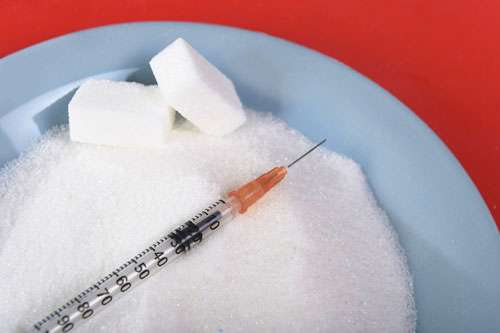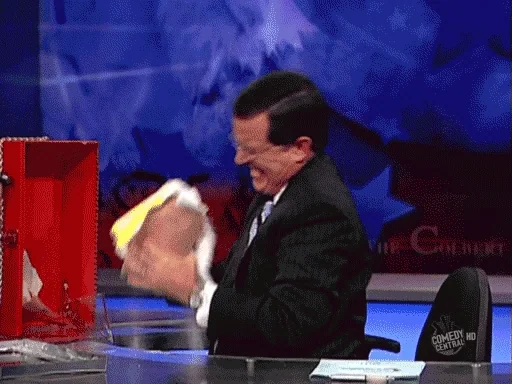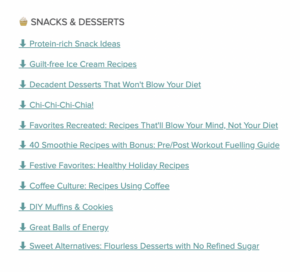November 20, 2024
Sugar’s addictive qualities are rooted in its powerful impact on the brain’s reward system.
Scientific studies have revealed that sugar triggers the release of dopamine, a neurotransmitter associated with pleasure and reward, in the brain’s reward centres much like other addictive substances.
For instance, a study published in the American Journal of Clinical Nutrition found that the consumption of high-sugar foods lights up the brain’s reward pathways through dopamine release, compelling individuals to seek out this feel-good rush repeatedly. This mechanism can lead to a cycle of cravings and withdrawals similar to those experienced with addictive drugs.

Dr. David Reuben, author of Everything You Always Wanted to Know About Nutrition says, “white refined sugar is not a food. It is a pure chemical extracted from plant sources, purer in fact than cocaine, which it resembles in many ways. Its true name is sucrose and its chemical formula is C12H22O11. It has 12 carbon atoms, 22 hydrogen atoms 11 oxygen atoms, and absolutely nothing else to offer”.
The chemical formula for cocaine is C17H21NO4. For all practical purposes, the difference is that sugar is missing the “N”, or nitrogen atom. (www.rense.com/general45/sugar)
In a study by researchers at Yale University, the simple sight of a milkshake activated the same reward centers of the brain as cocaine among people with addictive eating habits.
Furthermore, research in animals has shown that sugar can induce behavioral and neurochemical changes that mimic those caused by addictive substances, including cravings and tolerance (increasing amounts of sugar are needed to achieve the same ‘high’). A 2007 study showed that rats actually prefer sugar water to cocaine. Rats given fatty and sugary products demonstrated classic symptoms of addiction including tolerance and withdrawal symptoms when the products were taken away.”(www.psychologytoday.com/blog/where-science-meets-the-steps)
The understanding of these processes illustrates why cutting sugar out of one’s diet can be challenging and often requires a strategy akin to addressing other forms of addiction.
This body of evidence supports the argument that sugar’s impact on the brain is profound, influencing not only our dietary choices but also our behavioral patterns and overall health.

So for those of you who have done (or will be doing) our no-sugar challenges, either as part of our nutrition membership RxHABITS or our GRIT50 Challenge, you might have found this part of the challenge very… challenging! It absolutely could be because you experienced withdrawal symptoms such as poor energy, depressed mood, headaches, irritability and intense cravings.
Hang in there, my friend! I promise you, these symptoms will pass.
10 tips to help you reduce your sugar intake and overcome the cravings:
1. Understand Your Triggers
Because sugar intake influences our reward or happy centre of the brain, the behavioural pattern that is developed is a strong one. If you can identify the situations, times, or emotions that your brain has associated feeling better when consuming sugar – then you can change that behavioural pattern by developing strategies to avoid or replace them with healthier options, instead of with sugar.
2. Remove Temptations
Get rid of all sugar products in your home and work place. If it’s there, it’s too easy to reach for when the cravings hit.
3. Read Labels Carefully
Sugar hides in many processed foods, often under different names (like high-fructose corn syrup, dextrose, or sucrose). By reading labels, you can avoid added sugars and choose products with natural or no sugar.
4. Avoid sugar entirely.
Ripoff the bandaid! I know that sounds harsh, but trust me on this – a few days of cold turkey will be more effective than weeks, months (or more) of struggling with the cravings. When you consume any sugar, your blood sugar balances will be thrown off – you’ll have cycles of blood sugar highs and lows. When your blood sugar is low, the brain will signal that it must be brought up. The quickest way to do that is to consume refined sugar, so boom – your brain triggers intense sugar cravings. It’s a vicious cycle that must be broken.
5. Eat Whole Foods, including Healthy Fats and Proteins
Focus on whole foods that are naturally low in sugar, such as vegetables, fruits, lean proteins, and whole grains. These foods are not only healthier but help to stabilize blood sugar levels, which will help reduce those nasty cravings. Meals and snacks that include healthy fats and proteins can help keep blood sugar levels stable and satiate hunger. Foods like nuts, seeds, avocados, olive oil, fish, and lean meats are great options.
6. Find Sweet Alternatives
When a sugar craving hits, try satisfying it with healthier alternatives – fresh fruit, yogurt with a touch of honey, dark chocolate (at least 70% cocoa), or snacks and baking recipes made with natural sweeteners like honey or maple syrup. Also, try experimenting with spices like cinnamon, nutmeg, and vanilla can add sweetness without sugar.
If you need ideas, we dish out loads of naturally sweetened deliciousness in our nutrition membership RxHABITS!
7. Stay Hydrated
Sometimes, what feels like a sugar craving is actually dehydration. Drinking plenty of water throughout the day can help curb sugar cravings and support overall health. Also, try chugging a bunch of water every time you have a sugar craving. Remember that your brain is capable to re-programming. If every time you crave sugar, you drink a glass of water, not only will you be hydrating yourself, but will soon crave health-promoting water instead of sugar. Win-Win!
8. Get your zzzzzzzz’s
Studies show that as little as 2 hours of reduced sleep increases cortisol, which disrupts blood sugars, reduces energy levels, and results in increased refined carbs and sugar cravings.
9. Eat more!
Restricting total calories too much always backfires. When your body burns far more energy than it receives (that is, more than you feed it), it triggers alarms in the body that you’re in starvation mode and again, just like low blood sugars, low energy availability will trigger alarm bells that lead you straight to the sweets.
(pssst: yes, a small caloric deficit is required to support weight loss, get in touch if you’d like help determining what those numbers are for you).
10. Supplement with Berberine
A compound found in several plants like Goldenseal, Barberry, and Oregon grape, berberine is gaining recognition for its potential to manage blood sugar levels and reduce sugar cravings. It’s been shown to enhance insulin sensitivity by activating an enzyme called AMP-activated protein kinase (AMPK), often referred to as a “metabolic master switch.” By improving how effectively your body uses insulin, berberine helps regulate blood sugar levels, reducing the rapid spikes and drops that can trigger sugar cravings. Research, including a study published in the “Metabolism” journal, highlights berberine’s role in improving insulin action and reducing insulin resistance, which is crucial for maintaining stable blood sugar levels.
As with any supplement, it’s wise to consult with your primary healthcare provider before starting berberine, especially if you are taking other medications or managing a health condition.
Breaking a sugar addiction takes time and commitment, but with these strategies, you can start to reduce your intake, manage cravings, and make healthier choices that benefit your overall well-being.
You got this 👊🏼
Originally posted in January 2014, updated with more awesome sauce in November 2024.
How to Break Your Sugar Addiction
The entire contents of this website are based upon the opinions of Build Holistic Nutrition. Please note that Build Nutrition is not a dietitian, physician, pharmacist or other licensed healthcare professional. The information on this website is NOT intended as medical advice, nor is it intended to replace the care of a qualified health care professional. This content is not intended to diagnose or treat any diseases. Always consult with your primary care physician or licensed healthcare provider for all diagnosis and treatment of any diseases or conditions, for medications or medical advice, as well as before changing your health care regimen.
© BUILD NUTRITION 2026. ALL RIGHTS RESERVED. PRIVACY POLICY
Go ahead, creep us on social. You know you want to!

